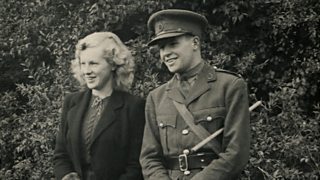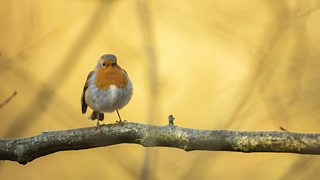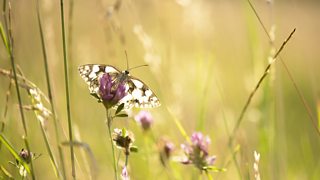We recently marked VE Day – taking time to commemorate a generation who made sacrifices, endured hardships and made this world safer for everyone. Here, Beccy Speight, chief executive of the RSPB, looks at the astonishing story of one of her predecessors and how nature has provided solace in our current crisis.

Beccy Speight RSPB chief executive Ben Andrew RSPB Images
I’ve been reflecting on a handful of heroes of that generation, including one, a man named Peter Conder OBE, who also happens to be a predecessor of mine as CEO of the RSPB.
Over 200,000 servicemen endured time as POWs during the Second World War, but Peter’s experiences, alongside those of other future environmentalists John Barrett, John Buxton and George Waterston must surely be unique – enduring their unspeakable hardships by studying the birds flying in and around the barbed-wire fences of their German prisons.
As Derek Niemann, also formally of the RSPB, has so beautifully captured in his book ‘Birds in a Cage’ and assorted writings on this subject: “while other officers made music, read, performed plays or simply frittered away the years… In taking joy from the natural world beyond them, they almost forgot their plight as prisoners.”

Peter with sister Natalie By permission of Sarah Rhodes
Transforming the RSPB
For the millions of us now in lockdown, the parallels are obvious and inspiring. Peter and his friends found joy in redstarts, crows, jackdaws and singing skylarks amidst all the horrors they experienced, making detailed notes on their behaviour on every scrap of paper they could find.
It is a remarkable story. But what is also remarkable about these four, and Peter in particular, is what came next.
After the war he joined the RSPB, first as a warden before working his way through the organisation to lead it between 1962 and 1975.
Under his stewardship the RSPB was transformed. The land we managed for nature grew from little to 20,000 hectares. He established our world leading research department and he understood the importance of policy in driving change, so created posts that tackled conservation issues at government level. Even more significantly, our little organisation of 20,000 passionate enthusiasts grew to a movement for nature of 200,000 people by the time he retired.
Bringing together science and passionate people allowed the RSPB to lead a decade-long campaign to outlaw the use of dangerous chemicals such as DDT and end the ‘Silent Spring’.

Peter Conder was director of the RSPB from 1963 76 RSPB Images
Providing solace during lockdown
So what are the lessons we can learn from Peter’s story and comparisons with our own times?
Firstly that nature has a remarkable way of restoring calm and helping us through the toughest moments. As I write this, I can hear songbirds calling and see a pair of blue tits in my garden busying themselves about a nest. Above me spring blossom is floating down - all signs that even in these turbulent times our world is resilient.
But I think there are more practical lessons as well. Many of the species bringing us joy over the past few months would be struggling even more without Peter’s legacy and wartime experiences to inspire our work.
Nature may sound louder than ever before this spring but in reality it is facing a deep crisis of its own. Over 40 million birds have vanished from UK skies in just the last 50 years. Once common birds have become much rarer because of destruction of the places they call home.

Robin on a branch Ben Andrew RSPB Images
Nature needs our help
As we move towards the ‘new normal’ we must not forget the wildlife that has been sustaining us. We have a chance to rebuild our connection with nature, to ensure we all have access to it and that as a society we value the benefits this will bring to our health and collective sense of wellbeing.
We also need to rebuild our economy over the coming months and years. But this must be done in partnership with nature and the climate, not at its expense. Peter’s story tells us that from horror, great things can come and we have a duty to protect our precious natural world for ourselves and for future generations with a truly green recovery.
If we look after nature, nature will look after us.

Marbled white butterfly in long grass Ben Andrew RSPB Images
